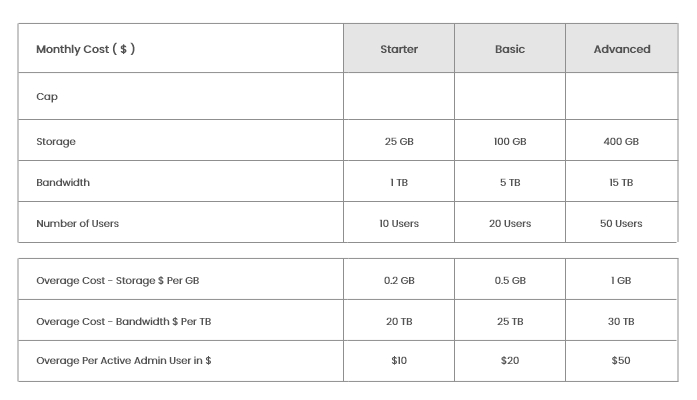



Tips for Creating Unique Meta Titles at the Enterprise Level
Writing intriguing, descriptive meta titles is difficult, and it becomes even more difficult when you have...
In the world of SEO, meta descriptions are nothing new.
Because creating intriguing titles can increase clicks and sales, we need them. They are taken into account by Google's ranking algorithms and aid readers and search engines in understanding the content of the page.
For these reasons, even brand-new website owners are modifying their titles.
However, meta titles get more complicated when you're working on an enterprise site and publishing a lot of content.
Challenges Businesses Must Overcome
When creating meta titles, businesses battle two main problems:
- Cannibalization
- Uniqueness
On various pages of your website, your titles should center around keywords that don't compete with one another.
A great example of a website where cannibalization is simple is Amazon, where numerous sellers offer the same product.
If you conduct a site search for "dove deodorant men," you will come across dozens and dozens of products, many of which are identical.
Automation or sophisticated algorithms can, to some extent, assist in creating unique titles, confirming that the same title already exists, and creating subtle changes to create unique titles.
To ensure that titles are distinct and that there isn't title cannibalization, it is frequently preferable to use human input in addition to tools (such as backend scripts that check for the same or similar titles).
Different meta titles might exist depending on:
- Content purpose
- Sales material
- Informational substance
- Merchandise pages
Other than that, standard meta title best practices still hold true.
On enterprise websites, you can still use best practices for meta titles.
Consider the type of business sites you are dealing with as well, though.
Enterprise Types And The Vast Content They Produce
There are several types of enterprise sites.
- Large, international businesses enjoy posting news content.
- Some businesses emphasize blogs.
- Online shops are product-focused.
An enterprise website with a tonne of content is Microsoft.
The website makes use of a number of subdomains, such as developer.microsoft.com, to help manage its content and keep it organized.
Additionally, they have a separate "blogs" subdomain.
From a site structure perspective, subdomains might be advantageous, but many businesses don't use them.
eBay is another business example that, despite starting out as an auction site, primarily functions as an online store.
Once more, the company has a tonne of content and information:
- Mainly auctions
- Community area
- A number of subdomains
However, when you look up specific product names on Google for eBay, thousands of pages for the same item are indexed.
On the first page, differentiating meta titles include:
- Li-Ion is changed to Lithium-Ion
- Add "Brushless" or additional adjectives
- Adding quotes
- Changing the order of some words
However, if you're the one creating 32,000 meta descriptions for the same item, you have a sizable task ahead of you.
Manually, there is no simple solution, but it is undoubtedly doable with the proper strategy.
Before trying to hack your way to mastering enterprise meta titles, you must first make sure that every title is written correctly.
How To Write Meta Titles Correctly
Both art and science go into creating meta-descriptions.
Scaling them can be particularly difficult because of this.
So before you consider scaling, it's critical to understand how to properly write meta descriptions.
Meta descriptions should be:
- Thirty to sixty characters. The search results will not properly display longer titles. Anything less than 30 characters won't be sufficient to inform searchers and search engines of the topic of the page.
- Include your primary keyword and be descriptive. What does this page discuss? Here, it's crucial to be direct and truthful. To improve SEO, your title should both describe your page and contain your main keyword.
Follow these guidelines when creating a meta title if you want your page to have a chance of ranking.
Finding inventive ways to include the following in your meta titles will help you go one step further and increase their effectiveness.
Fuelling Words
Searchers can be convinced to click on your website by using the right words or phrases. These are words that elicit strong feelings or other mental reactions.
Here are some strong keywords to use in meta titles:
- Get
- Try
- Learn
- Grow
- Exclusive
- Time is limited
- Secrets
- Special deal
- Urgent
- last opportunity
- Hurry
- Free
- Guarantee
You can get more clicks by using language that evokes an emotional response.
Make sure to include unique selling propositions, though.
Your Differentiating Qualities
How does your offering differ from those of the competition?
What is your unique selling proposition (USP), in other words?
Your meta titles may get more clicks if you include your USPs.
For instance, some of the top results for "electricians in NYC" include the following words:
- Best
- Certified
- 24/7 emergency service
- Free price quotes
You want an electrician who is "the best" or provides emergency service if you are in dire need of one. These are special selling points that draw clicks, but they can also improve your SEO by including keywords and outlining the content of your page.
In conclusion, the proper meta title is:
- Is succinct (up to 60 characters) and sums up the content of the page
- Incorporates the page's primary keyword
- Includes USPs and trigger words
Although it may seem difficult to fit everything in a small area, it's actually much simpler than you might imagine.
Let's look at some pointers and techniques to make creating meta titles simpler and quicker.
3 Tricks For Scalable Enterprise Meta Title Mastery
1. Automate the procedure first
Although automation has advanced significantly, Google recently stated that AI-generated content violates its policies.
Does this also cover the meta titles? I'm not sure, but you don't want to take the chance that AI will render thousands of page titles unintelligible.
Automate through instead of:
- Searching for titles that are similar or exact
- Recommending strategies to include unique information (more below)
- Recommending word synonyms
- Creating titles automatically with Python and Javascript
You can produce titles more quickly if you use even small amounts of "automation."
2. Look for novel ways to include distinctive information
Writing meta titles at scale can be difficult because you eventually run out of ideas.
Additionally, it might be difficult to come up with original meta descriptions if you sell identical products or variations of the same item.
3. Dates, Categories, and Authors
If your company regularly publishes news or blogs, adding three additional elements will make the titles stand out. The three that we suggest are:
- The title with the author's name
- A release date
- A grouping
No one will object to seeing this information at the end of the titles, ideally after a dash or pipe, since these are news and blog pages.
If you run an online store with vendors from outside your company, you can add the vendor's name at the end to make it more distinctive.
Enterprise meta titles can be difficult to write, but if you follow these guidelines, you can come up with original titles that encourage clicks and prevent cannibalization.
Hocalwire CMS handles the technical parts of keeping Large Sitemap, Indexing pages for Google, Optimizing page load times, Maintaining assets and file systems, and Warning for broken links and pages while you handle all these non-technical components of SEO for Enterprise sites. If you're searching for an enterprise-grade content management system, these are significant value adds. To learn more, Get a Free Demo of Hocalwire CMS.

